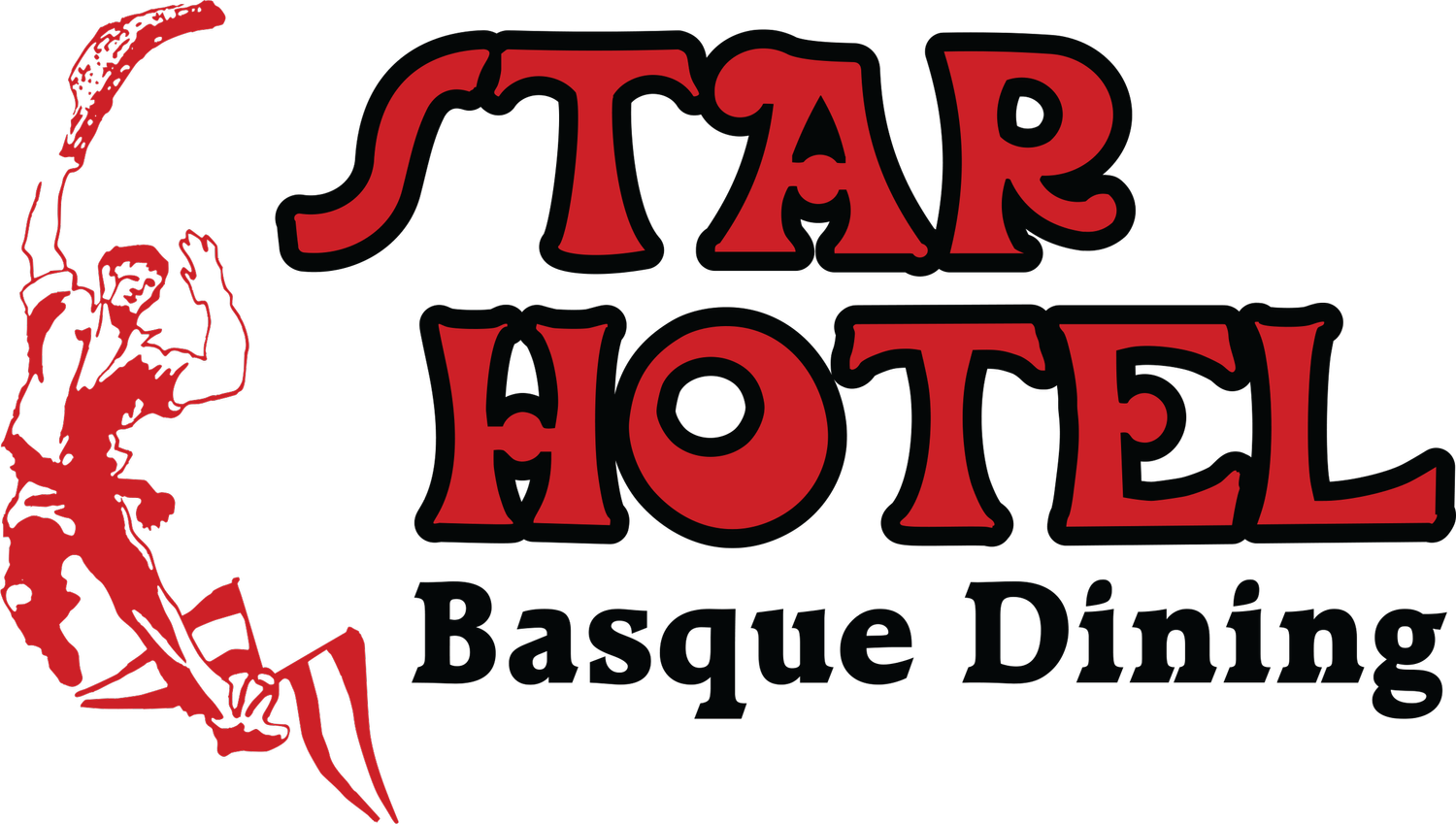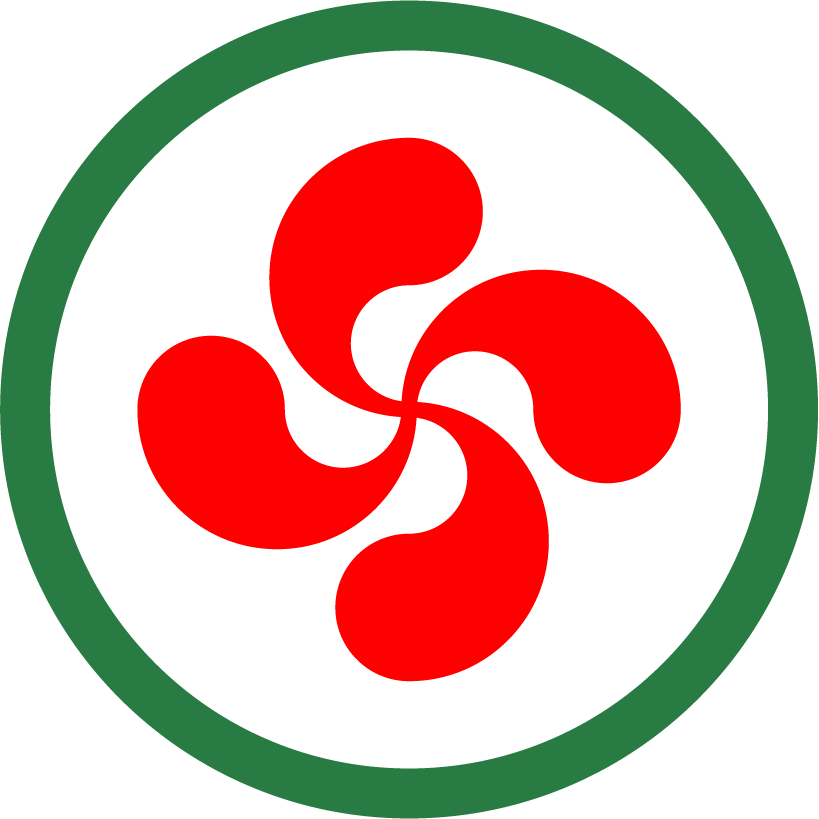
Our Story
OUR HISTORY
The Star Hotel opened in December of 1910 after a September construction start and building costs of $11,000. The long time dream of Pete Jauregui to make a home away from home for Basques, had come true. Eleven rooms, one bath and heat from wood stoves provided a cozy home for herders needing a place to stay until spring. Two years later, increased business demands required adding on, thus doubling the size of the building to its present day size. Sheep bands were sold in the winter, leaving herders without a home. The Star Hotel offered a friendly place with familiar language and customs, so unlike the English language and the incomprehensible customs they found in their new, strange land.
The Basques, since recorded time, have always sought work wherever necessary to survive economically. Whether they were cod fishermen in Newfoundland prior to Leif Erickson, Europe’s first whalers, or sailors Columbus relied on, they never forgot their homeland. It was customary for Basques to immigrate and then, once established, bring over family. It was common for religious people to immigrate, as evidenced in Mexico, which at the time included the American Southwest, California, and Nevada. The first bishop and archbishop of Mexico were Basque and influenced Basques to colonize the territory.
Many Basques went to South America, and not until the 49’ers and the gold rush in the late 1840’s did the Basques send word of their new land. They brought relatives to be ranchers and sheepherders, and as the word and idea spread, many Basques came and were among the primary developers of the open-range sheep industry.
Time and political wars divided the Basques geographically—the North, France; the South, Spain ~ “Zazpiak bat,” “the Seven are One,” symbolizes the four Spanish provinces and the three French provinces. The beginning of Basque nationalism and the name “Euskadi,” referring to the Basque region, began in the 1890’s. It was a long time coming for a group of people and a language that evolved from the inhabitants of the caves of that region over 10,000 years ago.
The Star Hotel was and continues to be a gathering place for all Basques. When it was first built, nightlife was nonexistent and the Star began holding dances, forerunners to the Sheepherders’ Ball still held during the winter. One attraction of these dances was the presence of young Basque girls who had come over to work in the hotel as maids and waitresses. Turnover was rapid because most of the young women quickly received marriage proposals.
Many weddings were performed at the Star, and the Jaureguis would furnish the wedding supper and dance as a wedding gift to the happy couples. In the years that followed the marriages, the Star served as a lying-in hospital for expectant mothers who came in from remote sheep camps and ranches where they lived. Matilde Jauregui, the wife of the owner, assisted the doctor with deliveries and care of the mothers and their new babies.
Also, during World War I, a flu epidemic raged, and many stricken people were cared for at the Star. Board and room during the early years cost $1.00 a day, and drinks at the bar were eight to ten for $1.00. During Prohibition, drinks were served in a private room where the evidence could be quickly hidden in the event of a raid.
Meals were served family-style, in the patterned, copper ceiling dining room. When the meals were ready, a waitress rang a large bell which could be heard everywhere in the hotel. There were no menus, and everyone ate the same thing at long tables where they mingled while eating. Meals included porru-salda (leek soup), baratzuri-salda (garlic soup), bacaloa a la Vizcaina (salt cod in tomato and pimento sauce), clams and rice, garbanzos with chorizos, arroz con polio (rice with chicken), rice pudding and flan or fruit. Spaghetti and beans were added as side dishes. Most of the early diners were boarders of the hotel.
Family style service and the calling dinner bell are customs still practiced today. There are some long- term boarders who are considered family and who eat at the Star, but most of the restaurant business comes from the community and tourism. Jauregui, Corta, Arrascada, Garamendi, Bengoa, Ozamis, Juaristi, Esnoz, Yanci, Aldazabal, Sarasua, Leonis, Lazcano. These were families making the Star the only hotel in Elko continuously owned by Basques, carrying on a 100+ year tradition of Basque hospitality.
The present proprietor of the Star Hotel is Scott Ygoa. He purchased the establishment in November of 2004 and is continuing to provide the friendly atmosphere and excellent food that has been a hallmark of the Star since 1910.
On egin, Enjoy your meal!
Previous Owners
1910-1929 – Pete Jauregui
1929 – Joe Corta
1929-1943 – G.F. Arrascada and Albert Garamendi
1943-1944 – Pete Jauregui
1944-1953 – Fred and Bibiana Bengoa
1953-1959 – Domingo and Marguerite Ozamis
1959-1964 – Jose Jauristi and Luis Alfonso Esnoz
1964-1989 – Joe & Anita Sarasua and John Aldazabal
1989-2004 – Miguel & Teresa Leonis and Severiano Lazcano
2004 - Current – Scott Ygoa
LAUBURU
The Lauburu is a prominent symbol of the Basque Country and Basque people – a sun symbol of prosperity and good fortune.
❤️ “The Lauburu, also known as the ‘Basque Cross’ is an ancient symbol commonly identified with the Basque people, and is said to represent their unity, culture and identity…. The Lauburu symbol was used in the Basque country about 200 years BC.”
Read an interesting article with a history of the Lauburu!
























